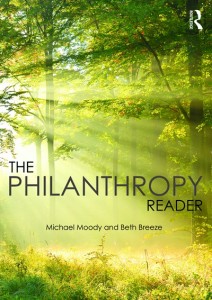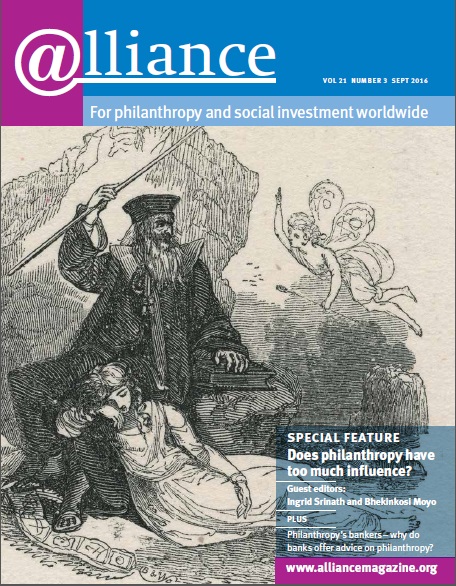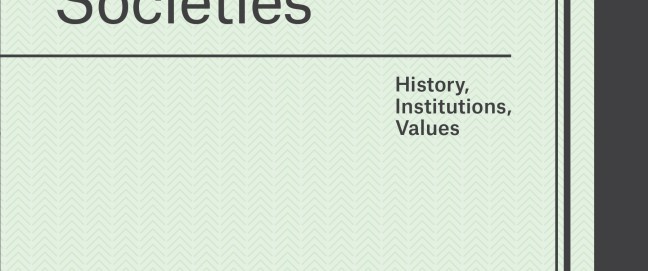Reviewed by Pat Danahey Janin
Why learn about philanthropy? Is generosity so complicated, after all? The rising number of philanthropy education programmes across the globe attests to the growing interest in a more formal study of the meaning and practice of giving money, time or talent for the betterment of society. Beth Breeze and Michael Moody, both notable academics in the field on different sides of the Atlantic, set out to create a ‘one-stop resource’ for students and practitioners seeking a fuller picture of the ‘nature, importance and diversity of the field’.
With The Philanthropy Reader they succeed in presenting a thorough treatment of this complex topic. It addresses the evolving social, political and economic contexts and competing views of philanthropy’s role in our societies. It takes an international and interdisciplinary approach, including articles from leading thinkers in both the academic and practitioner fields. These include, for example, competing definitions of philanthropy, the role of altruism and self-interest, and humanistic or effective philanthropy. 
The Philanthropy Reader addresses the question of philanthropy generally but focuses on elite philanthropy, which revolves around institutionalized giving (think foundations), the importance of donor agency, and the link between for-profit business practices and philanthropic models, for example impact investing and social entrepreneurship. It does not highlight one sector (such as education), use literary texts or provide practical ‘how to’ indicators for donors; nor is it a ‘feel good’ assembly of articles praising philanthropy. Rather, it is a carefully organized collection with sometimes surprising insights on topics such as biological altruism, the illogical geography of almshouses in England, and the apparent racism and politicized philanthropic practices after 9/11. These views challenge complacency and raise key contemporary questions.
Contrary to other course readers, it includes texts from outside the Anglo-Saxon world, revealing world views that differ greatly in places like Africa, China, India, Israel, Latin America and Turkey. It addresses the north vs south view of philanthropy, colonialism, and how intent and consequences shape social patterns. One drawback is the lack of information about the different authors. And the diversity of the texts makes some less accessible than others.
In each of six self-contained sections, the editors introduce the general topic covered, outlining the key sub-topics, their importance for the field, a summary of the main points and, finally, a list of thought-provoking discussion questions. Each section has on average 15 articles, which often complement each other.
Working internationally and across religious, cultural and linguistic boundaries, I found Section 2 (‘Philanthropy across time and place’) and Section 4 (‘Philanthropists and beneficiaries, a complex relationship’) particularly interesting. Section 2 points to the lingering notions of the past that are still present in the general thinking of philanthropy in the West, and to the universal vs the particular of giving. Section 4 covers the question of the gift in society and allows one to dig deeper into the implications of philanthropy. The example of what happens when there is ‘disruption of the normal order’ in the US, and the articles on Africa, Ubuntu, power and philanthropy give much to ponder about community, exchange and dignity.
The book will take students through key ideas about philanthropy from an Anglo-Saxon point of view, but it also gives a good dose of other cultures. Reflective practitioners can take some distance from their daily demands and deepen their thinking about the field with the provocative texts in this volume. The international perspectives put into question some practices and reveal the importance of context. A valuable reference!
Pat Danahey Janin is a PhD student in philanthropic studies at Indiana University, Lilly Family School of Philanthropy. Email pdanahey@iupui.edu
Coming up in 2017: Philanthropy studies – an emerging field?
About the book
Published by Routledge
Price £35.99
ISBN 978-1138903593
To order http://www.routledge.com
This book has also been reviewed by Marta Rey Garcia. You can read her review here.




Comments (0)